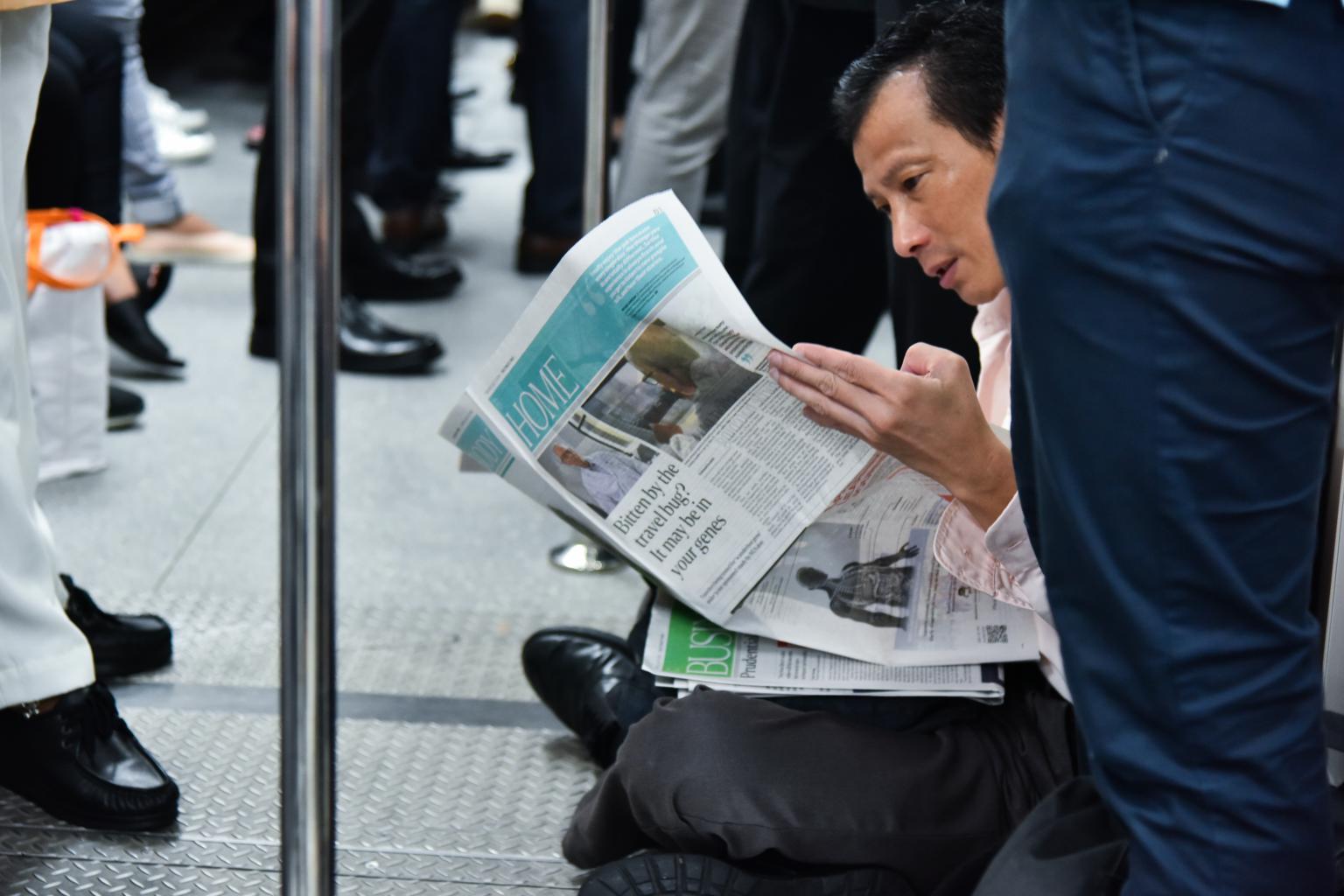2019 Edelman Trust Barometer
Higher trust in traditional media amid rise in news engagement
Sign up now: Get ST's newsletters delivered to your inbox

Traditional media was as valued as search engines two years ago, but the score for search engines this year is lower at 66.
PHOTO: ST FILE
Trust in traditional media in Singapore is up, an improvement over the perception two years ago, and it comes with a massive rise in engagement with the news, according to the 2019 Edelman Trust Barometer.
On both these parameters, the score for Singapore is also higher than the global average amid a continuing uncertain global environment and a quest for credible news.
At the same time, trust in social media remained low, with the majority of people - some 73 per cent both globally and in Singapore - worrying about false information or fake news being used as a political weapon.
Edelman's report said trust in traditional media was 71 per cent in 2019, a notch higher than the 70 per cent last year and significantly higher than the 62 per cent in 2017, though lower than the 75 per cent in 2012 (see chart).
Traditional media was as valued as search engines two years ago, but the score for search engines this year is lower at 66.
Globally, however, people have slightly more faith in search engines delivering trustworthy news than traditional media.

Trust in social media in Singapore, on the other hand, hovered in the range of 45 to 46 per cent, similar to that for "owned" media, at 48 per cent. The latter is defined as websites, blogs, software applications or apps that are owned and controlled by a brand or a company that is not a media company.
The findings in terms of consumption of news points to a phenomenon of re-engagement of the people happening in Singapore and the world, says Mr Matt Harrington, Edelman's global chief operating officer.
Data for Singapore shows a 25 percentage point increase in engagement with the news.
The share of those who consume news weekly or more frequently, is up 10 points from 30 per cent, while the share of amplifiers, or those who consume news as frequently as well as share or post content several times a month or more is up 15 points from 21 per cent (see chart).
The share of the disengaged, meanwhile, has gone down significantly from 49 to 24 per cent.
Globally, there has been a 22 percentage point increase in engagement with the news.
The phenomenon of re-engagement is manifesting itself in the return to traditional media, said Mr Harrington.
"It's a striking contrast to two years ago when concern over fake news caused people to walk away from consumption and amplification," he told The Straits Times.
In the United States, the New York Times and Washington Post have seen significant subscription increases as readers search for the truth, want to engage and take action, he added.


